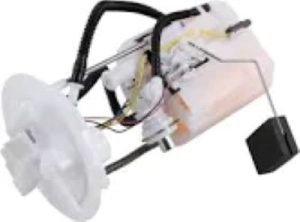Certain symptoms of the loss of fuel pump pressure are highly noticeable and directly influence the performance and efficiency of the engine. One symptom is difficulty in cold starts. Typically, fuel pumps operate within a pressure range of 30 to 80 psi to deliver fuel quickly to the fuel injectors. If the pressure drops below this range, the pump cannot supply the amount of fuel the system needs, hence leading to longer crank times or not starting at all. Most of the time, this happens with higher mileage vehicles, especially when their pumps are more than 100,000 miles old, as internal wear affects pump performance.
Poor acceleration or hesitation is another symptom of the loss of pressure. This is because, in the case of acceleration, the engine requires more flow of fuel to sustain power. If the pump could not maintain the required pressure, the engine may suffer from starvation, causing it to hesitate or jerk. Most mechanics will check the pressure of the fuel pump with a gauge connected to the fuel rail and see whether it sustains under load. A reading 20% below the range specified by the manufacturer usually indicates a weak pump that may need to be replaced.

Pressure loss can also be described by increased fuel consumption. In cases where the fuel pump cannot maintain constant pressure, the engine compensates by altering the air-fuel mixture, which is usually on the richer side, and this consumes more fuel. An unexpected drop in fuel economy-up to 15%-can be a warning sign for fuel system maladies including low pump pressure. This could be accompanied by rough idle because inconsistent fuel pressure upsets combustion, causing the engine to idle unevenly.
Other symptoms of loss of pressure include unusual noises-whining or sputtering sounds-near the fuel tank area. The noises occur mostly because the pump is trying to work harder in an attempt to pump fuel through clogged filters and obstructed lines. Mechanics usually advise to change the fuel filter every 30,000 to 50,000 miles to avoid any clogs that raise the demand for pressure on the pump and hence help extend the pump’s lifespan with efficient fuel delivery.
As Carroll Shelby, the automotive expert once said, “Performance is all about precision.” Early detection and solution finding for Fuel Pump pressure loss will ensure less costly repairs besides ensuring reliability in the operation of the vehicle. For more about high-quality fuel pumps, visit Fuel Pump.